Notes related to Spain

LATIN AMERICA ON THE SURREALIST PERIPHERY: A HISTORIOGRAPHY BEYOND BRETON
Amid the centenary of Surrealism, or at least from what is officially understood as its inception with the publication of The First Surrealist Manifesto by André Breton in 1924, it is truly significant to access an exhibition as profound as 1924: Other Surrealisms, presented by the MAPFRE Foundation in Madrid, which will later tour other locations. This exhibition is important for the centrifugal perspectives it presents, emphasizing the expansion of the main official—or officialism—ideas beyond Breton's boundaries and granting maximum importance to Latin America in the acceptance, production, and collaboration within the movement.

SOTO, NEGRET AND CHIRINO LEAD THE REOPENING OF THE REINA SOFÍA TERRACES AS AN EXHIBITION SPACE
The terraces of the Nouvel Building at the Reina Sofía Museum are being transformed into a new exhibition space. Under the title A Different Order: Utopian Geometry and Kinetic Art, the space will showcase two sculptural works by Jesús Rafael Soto and Edgar Negret, along with a third piece by Martín Chirino.

JORGE PARDO: COLOR, SPACE, AND PERCEPTION AT ELBA BENÍTEZ
Elba Benítez Gallery in Madrid, in collaboration with Clarissa Bronfman, presents a must-see exhibition by Jorge Pardo (Havana, Cuba, 1963), featuring a selection of works designed and created specifically for the gallery space. Emphasizing the importance of space, the Cuban artist employs his signature multidisciplinary approach to explore how color and texture influence perception. To this end, the exhibition is arranged in areas that serve a dual purpose.

VERÓNICA RIEDEL'S LAST WEEK AT LA NEOMUDÉJAR
The CAV La Neomudéjar Museum is in its final days of exhibiting Ecos del Vacío (Echoes of the Void), a project developed by Guatemalan filmmaker and artist Verónica Riedel during her artistic residency at Kárstica Espacio de Creación, in the town of Cañada del Hoyo, Cuenca.

CRISTÓBAL ASCENCIO, AT THE CULTURAL INSTITUTE OF MEXICO IN SPAIN
The Cultural Institute of Mexico in Spain hosts the exhibition Estrategias de recuperación (Recovery Strategies), featuring three recent projects by the photographer. Including the series Las flores mueren dos veces (Flowers Die Twice, 2021–2024), Palimpsesto (2024–2025), and Maíz (Corn) (2023–present), the Mexican photographer explores the elements and causes that create distortion and fragmentation in memory.
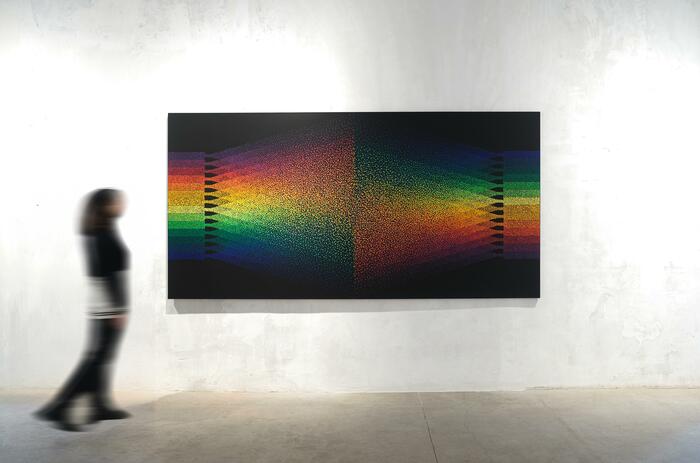
CELEBRATING LE PARC AT ALBARRÁN BOURDAIS
The Albarrán Bourdais gallery, at its Madrid venue, is hosting the exhibition En movimiento, by Julio Le Parc (Mendoza, Argentina, 1928). With a celebratory tone, as this is the first solo exhibition dedicated to the Argentine artist in Spain in 30 years, the show explores a fundamental part of the work of this master of kinetic and op-art and does so with a selection of several pieces that illustrate key periods. Without being a retrospective, there is something of that essence in the way the tour is presented, which proposes, through connected groups, an analysis of the connection between the past and the present.
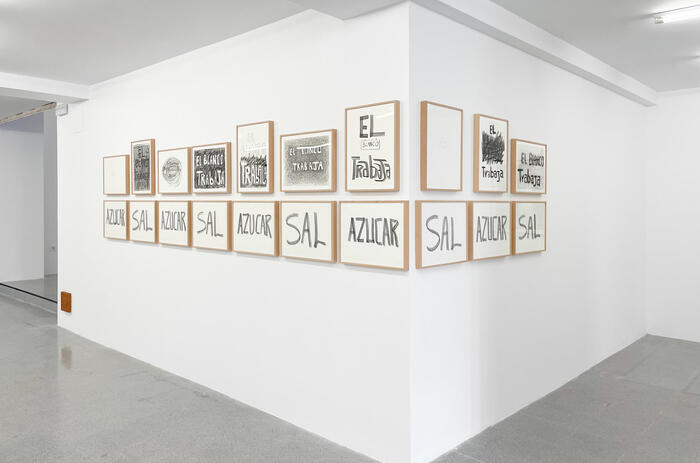
TRADITION, IDENTITY AND CONTEMPORARY LANGUAGE IN ÉDGAR CALEL
The concern about how the surrounding affects not only the individual but also artistic production connects with the principle by which Édgar Calel (San Juan Comalapa, Guatemala, 1987) has developed a unique project from scratch at La Oficina gallery. Sueños guardados en granos de maíz brings us to a specific moment of materialization, but it expands toward all the vertices with which the artist works, delving above all into the importance of ancestry, identity, and the spirituality that is related to space.
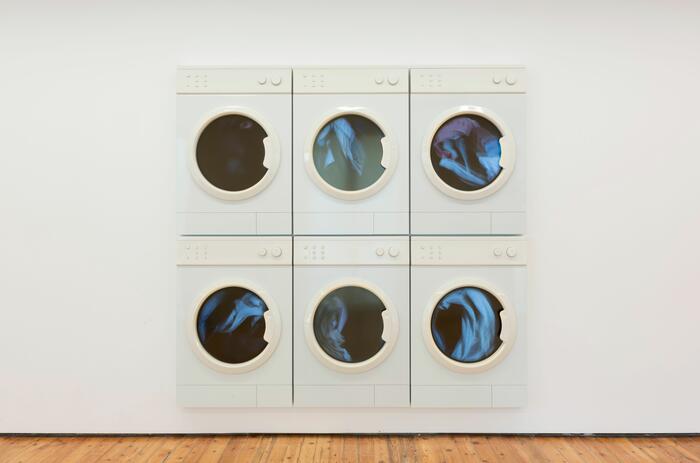
PERCEPTION AND QUOTIDIANITY IN LEANDRO ERLICH
La nevera en la sala (The Fridge in the Living Room) is the arrangement through which Leandro Erlich (Buenos Aires, Argentina, 1973) reinterprets his vision of perception through architecture and everyday life at Prats Nogueras Blanchard. A recurring theme in this Argentine artist’s work, the pieces exhibited at the gallery’s Madrid headquarters do not belong to a new production but rather mark the first public presentation of a series of works that engage with realism and illusion, complemented by their location and functionality within the space.

THE SUBTLE EMBROIDERY OF PAIN BY MARISA CAICHIOLO AT LNM MUSEUM
The Museo La Neomudéjar presents No hay más ciego que el que no quiere ver (No one is more blind than the one who refuses to see), a solo exhibition by Marisa Caichiolo (Santa Fe, Argentina, 1974). In this project, the artist explores and materializes pain and absence, primarily through embroidery. Drawing from her personal experiences, Caichiolo constructs narratives of resistance and instrumental memory to confront traumatic episodes—many of them rooted in forced disappearances.
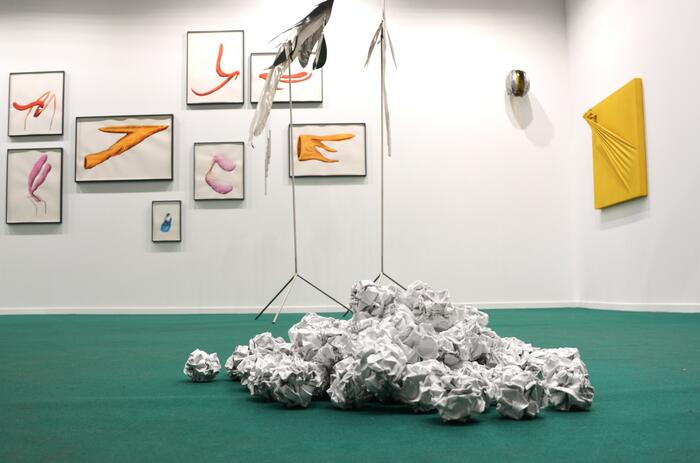
THE UNIVERSES OF THE LATIN AMERICAN GALLERIES IN ARCO
With strong gallery participation, ARCO is an interesting point to measure how the proposals reach the visitor and the collector. The choices based on aesthetic or commercial criteria create synergies that shape a fluid and sometimes circumstantial representation of each catalog. From Arte al Día, we delve into ten of those catalogs, expanded to variegated universes, monographs and dialogues that show a sample of the approach of Latin American galleries in their presence at the Madrid fair.
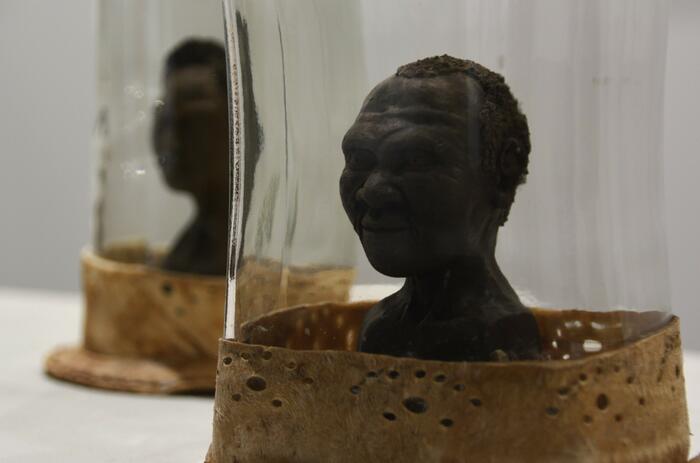
THE LATIN AMERICAN GAZE IN ARCO’S “PROFILES” PROGRAM
The organization has entrusted Mexican curator José Esparza Chong Cuy with the development of Perfiles | Arte latinoamericano, a curated journey that highlights, through ten selected figures, the diversity of visual approaches. As the curator himself states, it offers "a broad panorama of how to identify as artists and build community, proposing new ways of making, thinking, and living together."
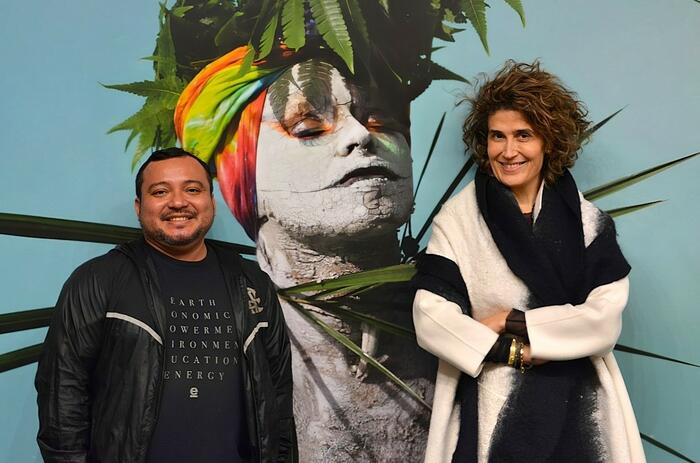
MARIA WILLS AND DENILSON BANIWA ON AMAZOFUTURISM
Maria Wills (Bogota, Colombia 1979) and Denilson Baniwa (Barcelos, Brazil, 1984) are the responsible for Wametisé: ideas for an amazofuturism, one of the special programs curated for ARCO 2025 and that navigates the Amazon and its growing impact on contemporary art. This proposal proposes a scenario of representation and dialogue through a selection of galleries and guest artists who will raise, through their works and their realities, the different conceptions of the Amazonian world and the possibilities of a collective future.
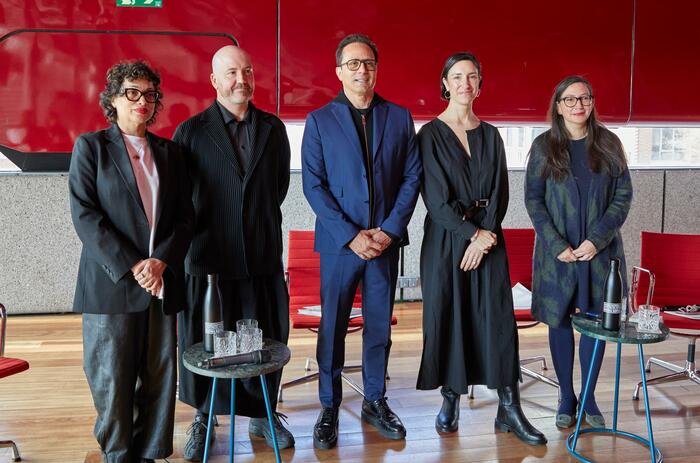
THE CENTRAL AMERICAN ART INSTITUTE (ICAC) OF THE REINA SOFIA MUSEUM IS BORN
Madrid's Reina Sofia Museum, in collaboration with the Reina Sofia Museum Foundation, reinforces its growing involvement and strategy for the dissemination and study of Latin American contemporary art with the creation of the Cáder Institute of Central American Art (ICAC), dedicated to the research and dissemination of Central American art.
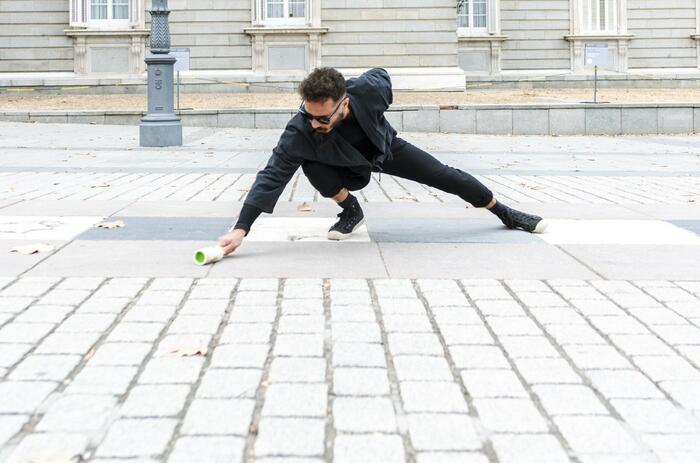
LEYVA NOVO: DUST IT IS AND TO DUST IT WILL TURN
Intricate between action and register, El Apartamento hosts Algo deja quien se va, the first solo exhibition in Spain by Reynier Leyva Novo (Havana, Cuba, 1983). Starting from the political concept of historical memory and linking it to the issues of power and colonialism, the artist unfolds in two well-differentiated series his proposal to approach these lines, and extends his networks to the impact (or influence) they have on the institutional and cultural fabric.
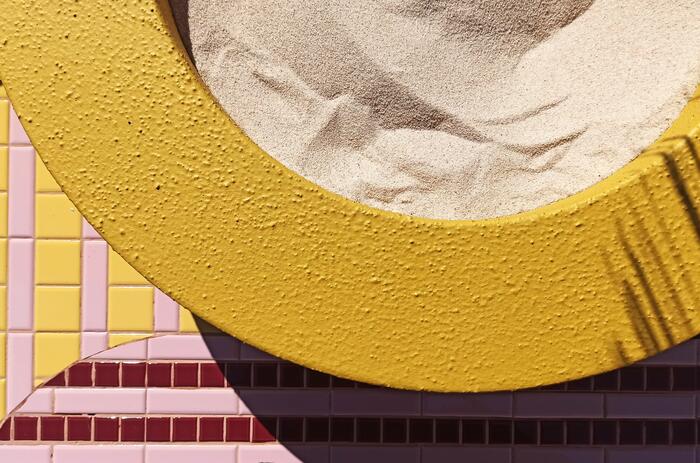
SPACE AND SENSES IN ANDREA CANEPA
The intervention Wasi Llamkha (Place and touch), by artist Andrea Canepa (Lima, Peru, 1980), stands on the South Patio of Madrid's Condeduque. This pavilion, designed as an ephemeral architectural structure, invites us to explore its sensorial value, far from the preeminence of the visual, and claims, by way of inspiration, the quipus, the forms of representation and recording of information from pre-Columbian Peru.
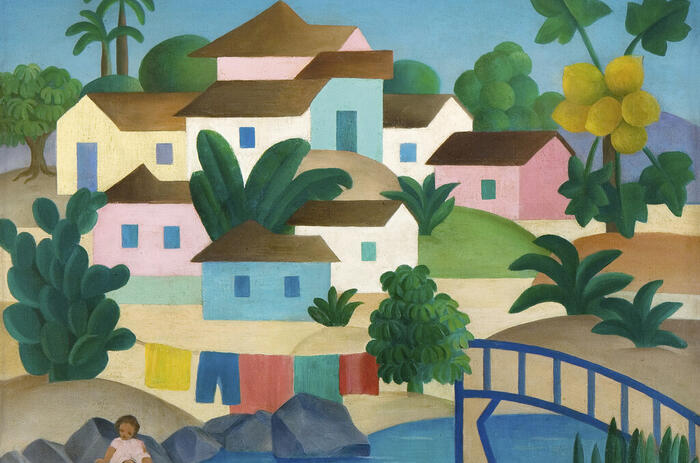
THE MODERNITY OF TARSILA DO AMARAL TAKES OVER THE GUGGENHEIM IN BILBAO
The Guggenheim Museum Bilbao hosts a retrospective exhibition of Tarsila do Amaral (Capivari, Brazil, 1886 - São Paulo, Brazil, 1973) focused on her conception and renovation of painting, as well as on her recognition as one of the key and most representative figures of the entry of avant-garde and modernizing pictorial languages in Latin America. A central name in Brazilian modernism, her style was consecrated as her own identity, a product of her desires and experiences, evoking both indigenous themes and the modernizing processes of a Brazil that was undergoing a constant transformation.
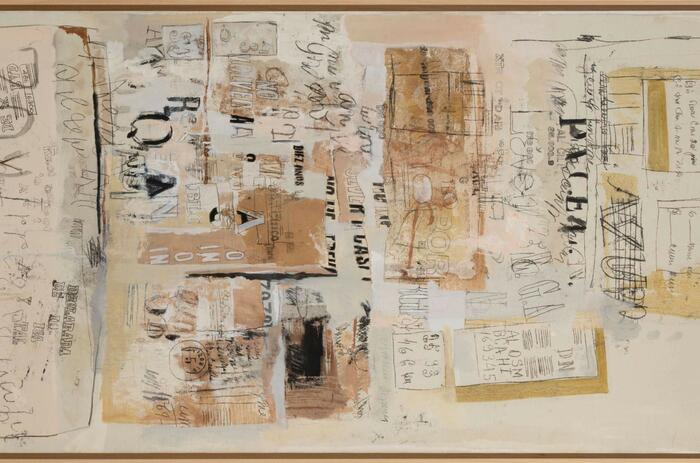
(RE)DISCOVERING SARAH GRILO AT MAISTERRAVALBUENA
Madrid-based Maisterravalbuena proposes a vindication of the work of Sarah Grilo (Buenos Aires, Argentina,1917 - Madrid, Spain, 2007) through Soluciones para pensar, the second exhibition on this artist at the gallery. With a didactic and rediscovery vocation, the exhibition gathers a selection of paintings in different formats made between the 1960s and 1990s, many of them unpublished to the public. This work of selection and direct work of the gallery with the archive and the legacy of the Argentinean artist becomes fundamental in the structuring of the objective of creating opportunities for a greater knowledge of Grilo's work.
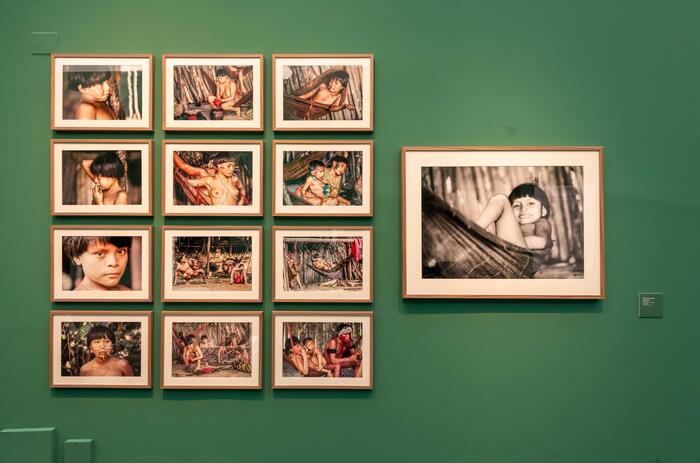
THE REVERSION OF AMAZONIAN CLICHÉS AT CENTROCENTRO
Madrid's CentroCentro approaches the artistic production related to the Amazon with the exhibition Trópico sin tópico: Amazonas (Tropic without Topic: Amazon), curated by Halim Badawi (Barranquilla, Colombia, 1982), and with which it intends to facilitate new looks beyond the usual ones with which the European imaginary contemplates the indigenous legacy and its relation with the contemporary world.
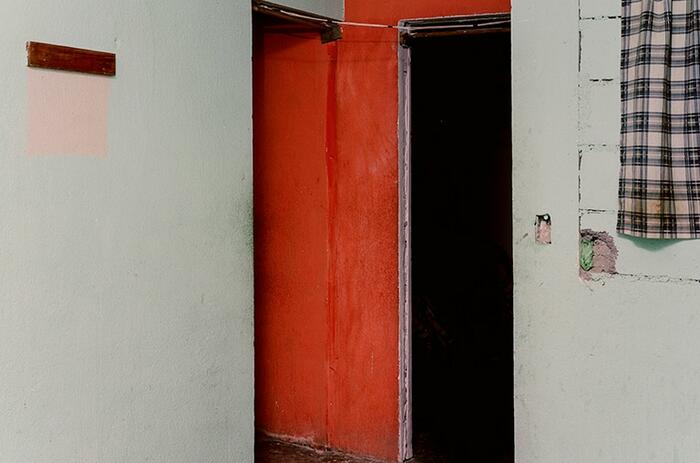
BORDER HOPELESSNESS THROUGH THE LENS OF FELIPE ROMERO
Felipe Romero (Bogota, Colombia, 1992) usually shows in his photographic proposal a high interest in conflict zones. While the scenario reflects this palpable but still intangible tension, it also serves as a reflective framework where the conflict and its protagonists meet.

PERUVIAN AMAZONIAN ART THROUGH THE HOCHSCHILD CORREA COLLECTION
The Hochschild Correa Collection boasts of being the most complete private collection of contemporary art from the Peruvian Amazon. Nevertheless, for more than a decade, it has been built on a varied and unrestricted collection, which has made it possible to bring together the different trends and techniques currently being used in the region, with a focus on dialogue and a certain relational patina among the works that make up the collection.
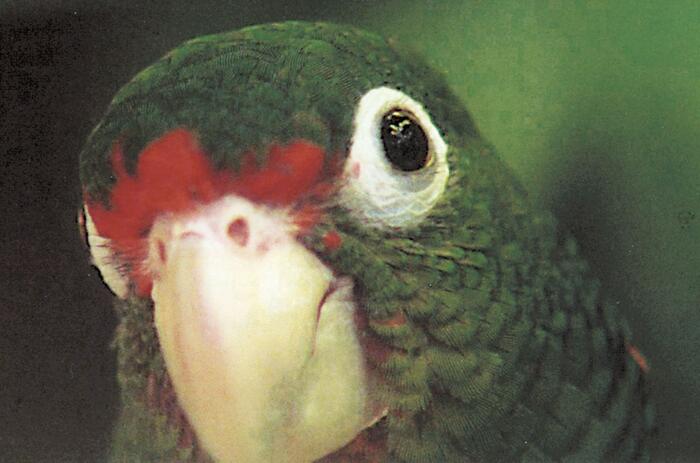
ALLORA & CALZADILLA'S FABLE ON LISTENING
La Casa Encendida is planning a large part of its artistic, exhibition program this season around the concept of Verbos encendidos, a framework line of argument that frames the theme and the perspective from which certain public, political and social issues are approached from the institution. Escuchar (Listen) is the first verb, chosen to start with it a call for attention towards the construction of spaces and tools that allow to overcome differences and find common spaces of understanding.
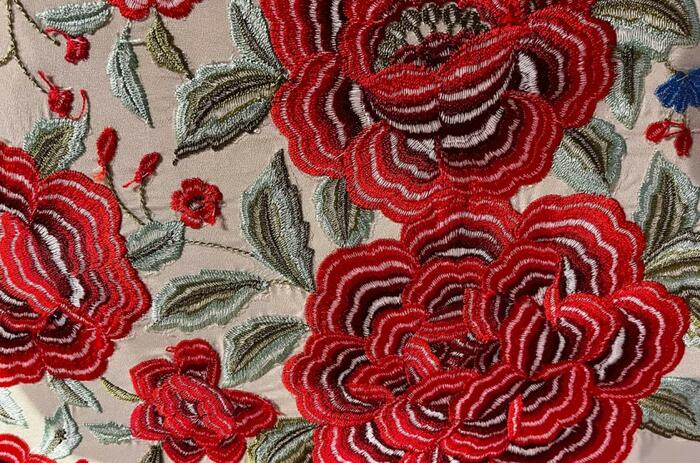
QUESTIONING TRADITIONS AT CARA
The Center for Art, Research and Alliances (CARA) spring 2025 exhibition, continents like seeds, brings together the work of La Chola Poblete (b. 1989, Argentina), Niño de Elche (b. 1985, Spain), and Pedro G. Romero (b. 1964, Spain); through sound, sculpture, performance, drawing, and painting, the show unravels and exposes the contradictions and ambiguities of colonial legacies.
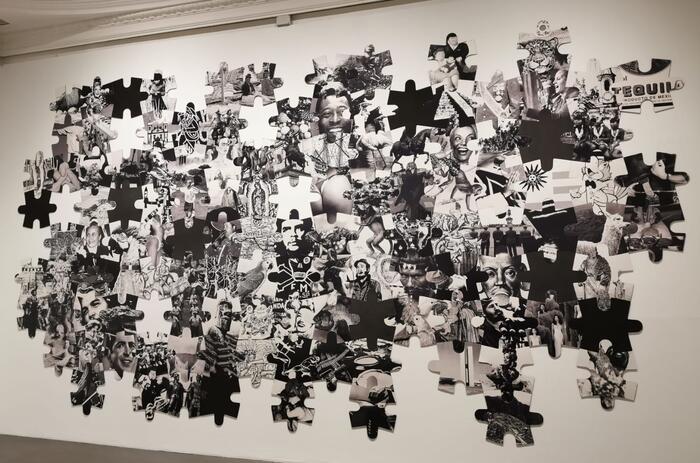
REGINA SILVEIRA IN BARCELONA: PARADOXES, IRONIES AND CRITICAL REFLECTION
La Virreina presents the exhibition Destructuras de poder, featuring the work of Regina Silveira (Porto Alegre, 1939), a multimedia artist and a key figure in Latin American and international conceptual art. This exhibition encompasses a significant part of the Brazilian artist’s research and artistic production.
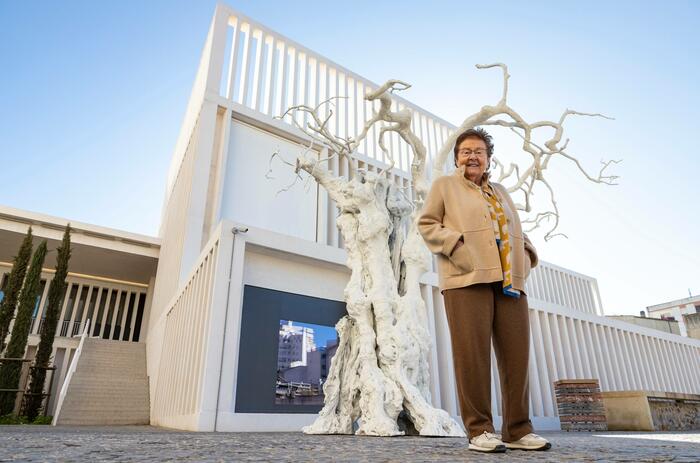
IN MEMORY OF HELGA DE ALVEAR
Helga de Alvear (Kirn/Nahe, Germany, 1936-Madrid, Spain, 2025) passed away at the age of 88. A fundamental figure of collecting and gallerism in Spain and Europe, her name remains as a metaphorical vocative and reference of one of the keys to the evolution and understanding of how contemporary art should be shared and communicated to facilitate its appreciation as a fundamental part of the times in which she lived. A true believer that artistic practices should come to the surface and be another representation of the motifs and realities that shaped each period of history, convulsive in the case of Spain, she approached it with the vision and experience of someone who finds a necessary space to appreciate the present and build a future.
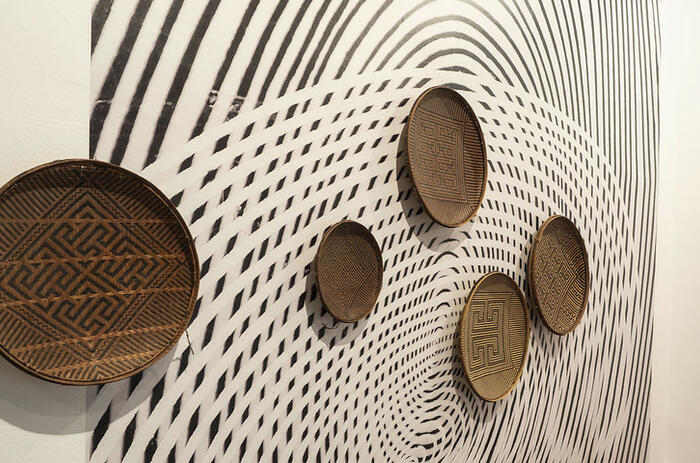
DIALOGUE BETWEEN GEOMETRIC ABSTRACTION AND AMAZON AT CASA DE AMERICA
Casa de América, in Madrid, hosts Convergences / Divergences. Two Aesthetics in Dialogue, a complete exhibition curated by Ariel Jimenez in which Ye'kwana craftsmanship, a community of the Venezuelan Amazon rainforest, and modern and contemporary geometric abstraction, represented by more than a hundred works from the Juan Carlos Maldonado Collection, are in dialogue. The exhibition delves into the relationship between the different aesthetics developed contemporarily by both groups and, above all, highlights the reference to modern art movements and their partial debt to the techniques and motifs of the peoples of the Amazon.
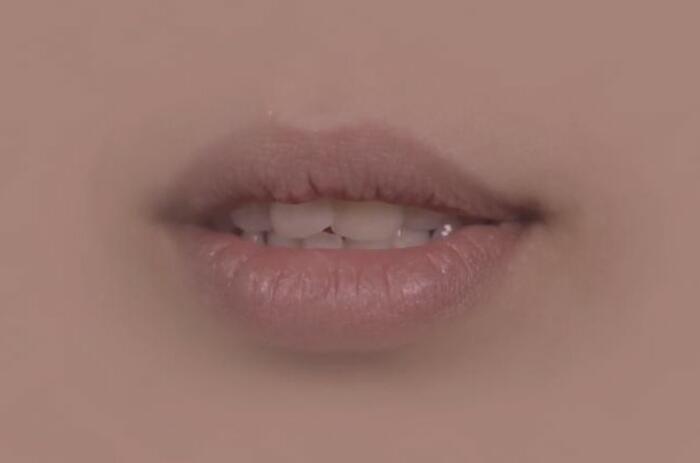
LANGUAGE AND SOCIETY IN LÚA CODERCH'S WORK AT THE RYDER
The work that Lúa Coderch (Iquitos, Peru, 1982) has been doing around language takes over her recent solo show at Madrid's The Ryder Projects to consolidate a new relational vision of communicative practices. Exhausted and exuberant, title of this partially retrospective and almost thesis exhibition, also responds to the two apparently opposite moods, but with an inexorable link, of the vital needs that seep into contemporary society between individuals and a certain extimacy that, organically, seems to have been imposed.
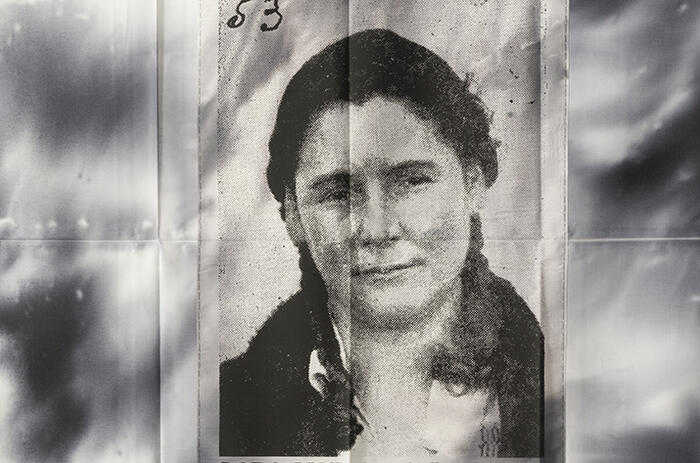
ES BALUARD RECOVERS DITTBORN'S AEROPOSTAL PAINTINGS
Es Baluard organizes Eugenio Dittborn. Pinturas Aeropostales, the first solo show in Spain of Eugenio Dittborn (Santiago, Chile, 1943), one of the key names in the development of Latin American conceptual art in the 1970s and 1980s. The exhibition focuses on the production of his aeropostal paintings, an artistic instrument that materializes his research and reflection on materials, the physical limits that constrain painting and its distribution and circulation.
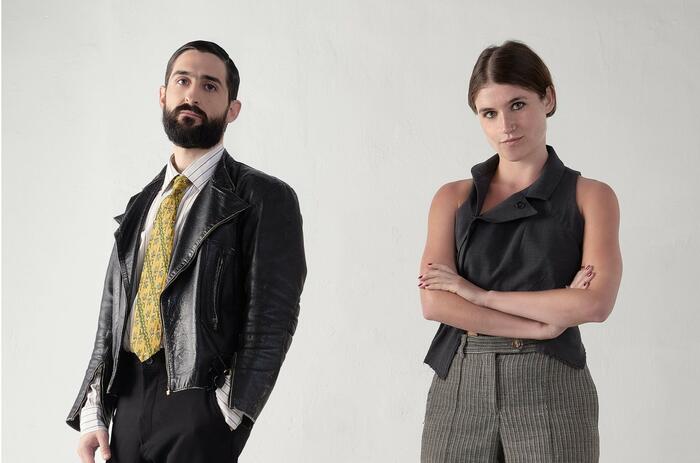
THE RYDER PROJECTS ANNOUNCED NEW CURATORS
The curatorial duo Carmen Lael Hines and Roberto Majano will be the new Head Curators at The RYDER Projects. This represents a new stage in the gallery that succeeds the period led by Rafa Barber, who has held this position heretofore.

GABRIEL O'SHEA'S HUMAN AND REALISTIC TECHNOLOGICAL FUTURE
Gabriel O'Shea (Metepec, Mexico, 1998) manages to delve into that huge and apparent dichotomy between the technological and the human (or the future and the real) in his most recent proposal at Hilario Galguera's Madrid headquarters, a series of paintings of high conceptual content that critically debate on several technical and thinking aspects.

EMPTINESS AND COLOR IN LÓPEZ-CHÁVEZ
Under the enlightening title of Los espacios del pánico (Estudios superficiales sobre el vacío y el color) (The spaces of panic-Surface studies on emptiness and color), the interesting individual exhibition that the Madrid gallery El Apartamento dedicates to Luis Enrique Lopez-Chavez (Manzanillo, Cuba, 1988) is developed as a thesis scenario for the almost scientific analysis that the Cuban artist has developed around the space of the void and the chromatic.


